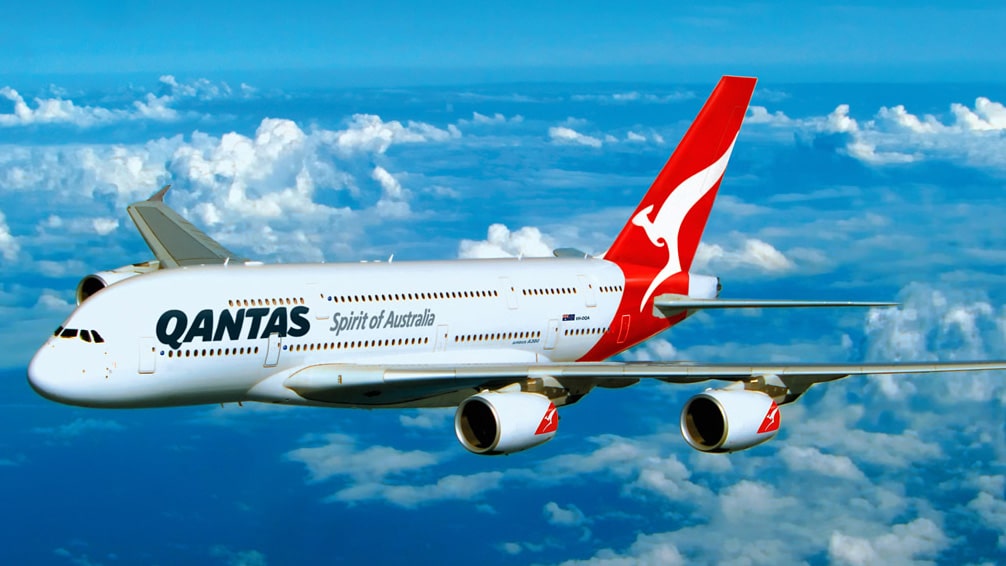Federal Court Imposes $90m Penalty on Qantas for Unlawful Outsourcing
The Federal Court of Australia has ordered Qantas Airways Limited to pay AUD $90 million in penalties after finding the airline unlawfully outsourced 1,820 ground operations roles in 2020. Justice Michael Lee described the conduct as a serious breach of workplace laws and emphasised that the penalty must act as a genuine deterrent against similar corporate behaviour in the future.
Of the total penalty, $50 million is to be paid to the Transport Workers’ Union (TWU), with the balance to be determined by the court. This significant financial sanction comes in addition to the earlier $120 million compensation order for affected workers who experienced both economic loss and psychological distress due to the unlawful outsourcing.
For workers and employers across Australia, this ruling highlights the importance of compliance with the Fair Work Act 2009 (Cth), as well as the strict obligations regarding consultation with unions and employees during large-scale restructures. Businesses that attempt to restructure purely to avoid industrial activity now face not only massive financial penalties but also severe reputational harm.
The Court’s Findings and Reasoning
Justice Michael Lee, delivering lengthy reasons for judgment, was critical of Qantas’s approach to the litigation. He noted that depriving individuals of lawful employment in order to avoid industrial activity is a fundamental violation of workplace rights. He also stated that such actions are not cured by later expressions of corporate regret.
Importantly, the court observed that no senior decision-maker from the time of the outsourcing gave evidence regarding cultural change within Qantas. This absence, according to the court, raised further concerns about accountability and transparency at the highest corporate level.
Qantas had already exhausted its appeals to the Full Federal Court and the High Court of Australia, leaving this penalty as a final resolution on liability. The airline has since issued a public apology and confirmed it will comply with the order and pay the penalty.
Key Legal Principles from the Qantas Case
This case underscores several key legal principles for employers in Sydney, New South Wales, and across Australia:
![]() Compliance with the Fair Work Act 2009 is non-negotiable for employers considering restructures or outsourcing.
Compliance with the Fair Work Act 2009 is non-negotiable for employers considering restructures or outsourcing.
![]() Employers must not take adverse action against employees or unions to suppress protected industrial activity.
Employers must not take adverse action against employees or unions to suppress protected industrial activity.
![]() Proper consultation processes must be followed under enterprise agreements and awards.
Proper consultation processes must be followed under enterprise agreements and awards.
![]() Documentation and a paper trail of genuine operational reasons are critical if decisions are later challenged in court.
Documentation and a paper trail of genuine operational reasons are critical if decisions are later challenged in court.
For employers, this case serves as a cautionary tale that even large corporations with access to extensive legal advice can face crippling financial and reputational consequences when workplace rights are disregarded.
Impact on Workers and the Transport Workers’ Union
The penalty is a landmark win for the Transport Workers’ Union, which had fought vigorously on behalf of the outsourced workers. Many of the affected employees had decades of service at Qantas and suffered not only financial hardship but also emotional and psychological harm due to the sudden loss of employment during the COVID-19 pandemic.
According to Australian Institute of Health and Welfare research, unemployment and job insecurity are strongly linked to poor mental health outcomes, making the unlawful outsourcing even more damaging for workers and their families.
By awarding $50 million directly to the TWU, the Federal Court reinforced the role of unions in protecting workplace rights and ensuring that workers have a collective voice when challenging unlawful conduct by employers.
Employer Risks in Large-Scale Restructures
Employers considering significant restructures must now carefully weigh the risks of non-compliance. The Qantas case shows that cost-cutting or union-avoidance strategies can backfire dramatically.
Risks include:
![]() Heavy financial penalties imposed by courts.
Heavy financial penalties imposed by courts.
![]() Compensation orders to affected workers for economic and psychological harm.
Compensation orders to affected workers for economic and psychological harm.
![]() Reputational damage in the eyes of consumers, investors, and regulators.
Reputational damage in the eyes of consumers, investors, and regulators.
![]() Years of costly and stressful litigation in the Federal Court or High Court of Australia.
Years of costly and stressful litigation in the Federal Court or High Court of Australia.
For businesses in Sydney and throughout NSW, the message is clear: corporate restructuring must always be grounded in legitimate commercial reasons and accompanied by strict adherence to workplace laws.
Guidance for Employers in Sydney
Employers in Sydney, Parramatta, and across NSW can take practical steps to minimise legal risk when restructuring or outsourcing operations:
![]() Seek early legal advice from an employment lawyer Sydney to ensure compliance with the Fair Work Act.
Seek early legal advice from an employment lawyer Sydney to ensure compliance with the Fair Work Act.
![]() Document all operational reasons for change and keep a clear paper trail.
Document all operational reasons for change and keep a clear paper trail.
![]() Engage openly with employees, unions, and stakeholders at an early stage.
Engage openly with employees, unions, and stakeholders at an early stage.
![]() Use independent HR consultants and risk assessments to evaluate alternatives.
Use independent HR consultants and risk assessments to evaluate alternatives.
![]() Ensure senior decision-makers are prepared to give evidence if challenged in court.
Ensure senior decision-makers are prepared to give evidence if challenged in court.
Relevance for Unions and Employees
The Qantas judgment not only strengthens union advocacy but also empowers individual employees. Workers who believe they are being targeted due to union activity or industrial action now have a clearer legal precedent for pursuing claims under the Fair Work Act.
Employees in NSW should be aware of their rights under the Fair Work Ombudsman guidelines and seek immediate advice if they suspect unlawful conduct during restructures. Early legal intervention can prevent long-term economic and psychological harm.
Comparisons with Other Recent Cases
The Qantas case is not an isolated example. In recent years, the media has reported on several large employers facing penalties for breaching workplace laws. For example, retailers, construction companies, and financial institutions have all been subject to adverse action claims when restructuring was found to target union activity.
This broader trend signals that regulators and courts are increasingly willing to hold employers accountable for unlawful conduct, regardless of industry or size.
Final Thoughts
The Federal Court’s $90 million penalty against Qantas represents a watershed moment in Australian employment law. It demonstrates the judiciary’s commitment to protecting workers’ rights and ensuring that corporate decisions are made for legitimate operational reasons, not to suppress lawful industrial action.
For businesses, the message is simple: consult legal experts, follow consultation obligations, and avoid any appearance of targeting workers for union activity. For employees and unions, the ruling is a powerful reminder that the law provides remedies when workplace rights are undermined.
If you are an employer planning a restructure or an employee affected by workplace changes, Jameson Law can provide expert legal support. Our team of employment and workplace lawyers in Sydney has extensive experience navigating complex disputes and ensuring compliance with workplace laws.













